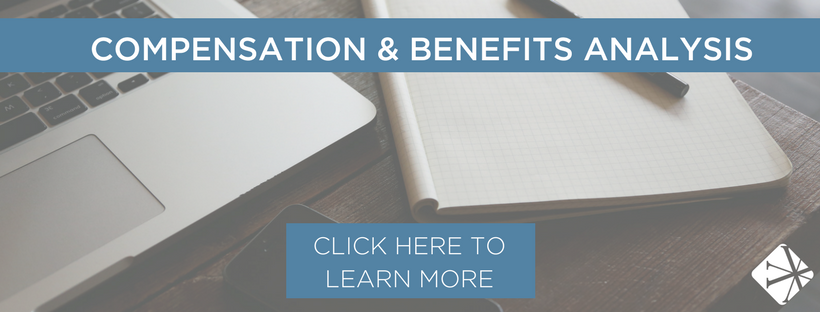Making Sense Of The Minister’s Housing Allowance
By: Vanderbloemen

*Note: On October 6, 2017, a federal judge in Wisconsin ruled that the housing allowance provided to clergy by the Internal Revenue Code is unconstitutional and violates the First Amendment’s Establishment Clause. This ruling will likely be stayed until it is decided by the U.S. Supreme Court. Keep this development in mind as you read this post. We will add updates as information becomes available.
Making sense of the minister’s housing allowance is no easy task. However, it is the most important tax benefit available to ministers today, so it is critical you understand how to make use of it.
What is the Minister’s Housing Allowance?
The minister’s housing allowance is a portion of a minister’s compensation designated in advance as housing allowance by the minister’s church. The housing allowance is beneficial because it is not considered part of the minister’s gross income for income tax purposes (it is considered part of gross income for self-employment tax purposes). The benefit derives from Section 107 of the Internal Revenue Code which states:
In the case of a minister of the gospel, gross income does not include the following:
- The rental value of a home furnished to him as part of his compensation
- The rental allowance paid to him as part of his compensation, to the extent used by him to rent or provide a home and to the extent such allowance does not exceed the fair rental value of the home, including furnishings and appurtenances like a garage, plus the cost of utilities
Who Can Claim the Allowance?
An individual eligible for the allowance must provide services which are ordinarily the duties of a minister of the gospel. The Internal Revenue Service (IRS), through various rulings, has used a balancing test of factors to determine if a person is considered a minister of the gospel. Under Knight v. Commissioner, 92 T.C.199 (1989) and Wingo v. Commissioner, 89 T.C. 911 (1987), there are five factors that determine if a person qualifies as a minister of the gospel.
A minister of the gospel must do most of the following:
- administer sacerdotal functions
- conduct worship services
- perform services in the control, conduct and maintenance of a religious organization
- be considered a spiritual leader by his or her religious body
- be ordained, licensed or commissioned. Under section 1402(c)(4) of the Code, at a minimum, the person is required to be “duly ordained, licensed or commissioned”
If you meet some, but not all of these factors, the IRS may or may not consider you a minister. It is important to note that while the court has held that not all of these factors need to be met on a case-by-case basis, factor five must be present in every case.
It can be a complicated issue to determine if you qualify as a minister under the tax code. The IRS has provided helpful guidelines and information in Publication 517. If you are unsure if you qualify, we recommend seeking advice from a legal or accounting firm.
Bi-vocational ministers also can claim a housing allowance, but only from their ministerial income, not their secular one. In addition to currently employed ministers, retired ministers also can have a housing allowance.
What Are Conditions for Claiming the Allowance?
In order to qualify for the allowance and exclude the amount from one’s gross income, two conditions must be met:
- The housing allowance cannot be retroactive – it must be approved in advance.
- The minster must spend the allowance on eligible housing expenses during the year in which it was given.
Typically, the approval of the housing allowance is included in a written resolution of the governing body or finance committee of the church. However, the burden of tracking actual housing expenses and determining the fair rental value of the housing falls on the minister, not the church.
How Can You Use the Allowance?
The housing allowance may be used for expenses related to renting a home, purchasing a home, and maintaining a current home. Examples of eligible expenses include:
- Mortgage payments
- Rental payments
- Utilities
- Mortgage interest and insurance
- Home insurance
- Property tax payments
- Furniture, appliances, dishes and cookware purchases (and their repair)
How Much Should You Designate as a Housing Allowance?
Generally, it is better to over rather than under designate the amount of the housing allowance. This is because the Tax Code does not contain a specific percentage or dollar limitation on how much can be designated in a housing allowance. However, the allowance cannot exceed “reasonable compensation” for the services provided.
While up to 100 percent of compensation can be designated as a housing allowance, the amount that can be excluded from gross income will not necessarily be the same. A qualifying minister can only exclude the lesser of the following amounts:
- The amount actually used to provide a home
- The amount officially designated as a rental allowance
- The fair rental value of the home, including furnishings, utilities, garage, etc.
If done properly, the designation of a housing allowance can be a great benefit to a qualifying minister and result in significant tax savings.
Qualifying ministers should ask their church to designate – in writing – an amount equal to either the fair market rental value of your home, utilities, maintenance and furnishings (if a parsonage is not provided) or the estimated expense of maintaining a parsonage provided by the church (in the case where a parsonage is provided and paid for by the church). You should keep accurate records of any expenses incurred throughout the year to justify the housing allowance exclusion.
How have you been able to utilize the minister's housing allowance?
Disclaimer: While we love providing helpful blog content and resources, this post is not intended to communicate legal advice. A qualified attorney and/or accountant should be consulted for any legal or tax opinions.




